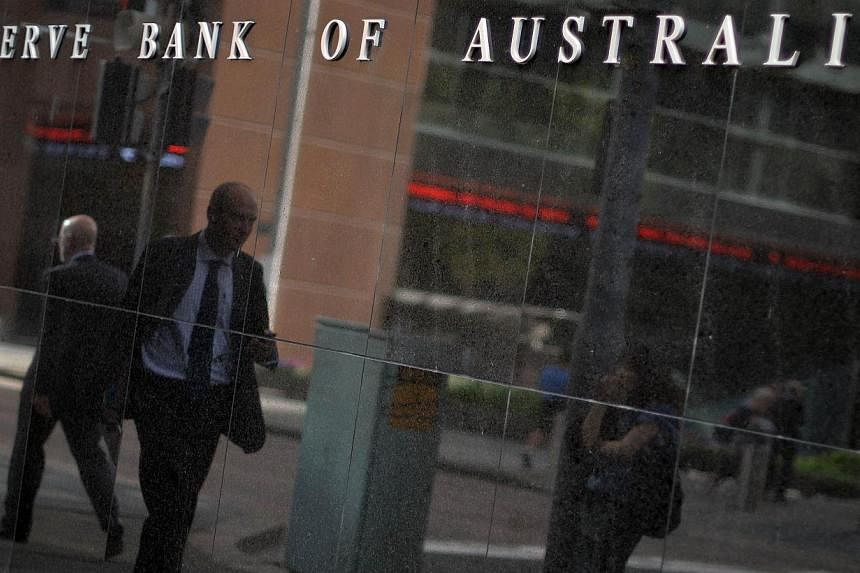SYDNEY (AFP) - Australia's central bank on Friday cut its forecasts for economic growth and inflation this year and warned unemployment would likely rise as the economy transitions away from a mining investment boom.
The Reserve Bank of Australia (RBA) said gross domestic product would expand 2.25-3.25 per cent in 2015, compared with a November estimate of 2.50-3.50 per cent.
"Growth overall is now forecast to remain at a below-trend pace somewhat longer than had earlier been expected," the RBA said in a quarterly economic update.
The bank had hinted at lower growth rates Tuesday when it cut interest rates to a record low of 2.25 per cent in a bid to kickstart the economy.
Friday's update said the economy had grown at about 2.5 per cent on average in the past two years but non-mining business investment was subdued.
The RBA said growth in the year to June 2015 was expected to come in at 2.25 per cent, the lower end of its November forecast of 2.0-3.0 per cent.
"GDP growth is forecast to remain a bit below trend over the course of this year, before picking up to an above-trend pace in the latter part of the forecast period as consumption growth improves, non-mining business investment lifts and LNG exports increase," it said.
The bank also lowered its inflation outlook to 2.0-3.0 per cent this year, from the 2.25-3.25 per cent forecast previously.
The RBA said lower interest rates and the further depreciation of the Australian dollar, which has fallen about 9.0 per cent against the US dollar since November, were expected to support demand.
But unemployment, currently 6.1 per cent, was likely to remain above 6.0 per cent until mid-2017.
"While leading indicators of labour demand have picked up since late 2013, at this stage they point to only modest employment growth and a slight rise in the unemployment rate in the near term," it said.

